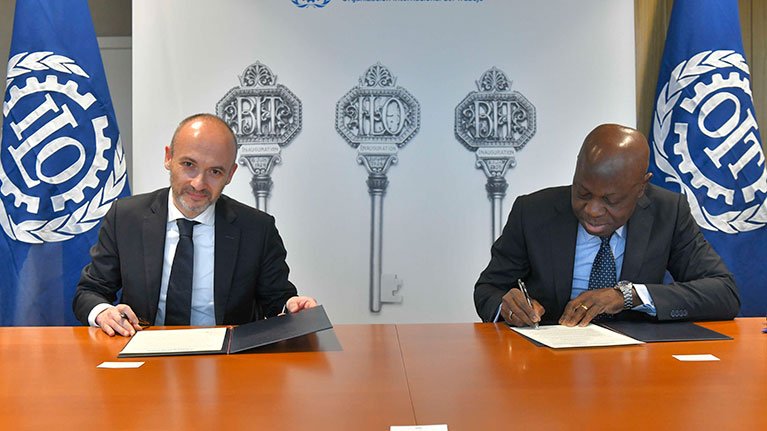Inditex—the world’s largest clothing retailer—the latest company to join the International Labour Organization’s (ILO) Global Business and Disability Network (GBDN).
The group’s CEO, Óscar García Maceiras, announced the move during a meeting in Geneva with ILO Director-General, Gilbert F. Houngbo. Both signed the GBDN Charter, which commits the company signatories to support ten disability inclusion principles. The Charter’s ten principles include equality of treatment and opportunities, accessibility and awareness-raising, the provision of reasonable accommodations at the workplace and collaboration with organizations of persons with disabilities.
The ILO Director-General welcomed Inditex’s move. “Companies increasingly recognize that their diversity, equity and inclusion efforts must address the inclusion of persons with disabilities to lead to positive and sustainable business changes. The ILO Global Business and Disability Network provides a unique space for enterprises to learn from and support each other on their respective disability inclusion journey,” said Houngbo.
“Disability inclusion in the workplace is a core component of our commitment to people. Diversity, fairness and inclusion are values we all embrace, values we pursue day-to-day, in order to have an impact within Inditex, as well as all around us: our pledge is to design opportunities for everyone,” underlined García Maceiras.
To show its commitment to the GBDN, Inditex is set to hire 1,500 people with disabilities worldwide across its store networks, logistics facilities, warehouses and offices all around the world. In markets where there are no specific thresholds required, the company’s target is that at least 2 per cent of its local staff should be persons with disabilities.
Established in 2010, the ILO Global Business and Disability Network (GBDN) is a unique employers’-led worldwide network of 36 multinational enterprises, 34 national business and disability networks, including in developing countries, as well as eight non-business associate members (academic institutions and disability and development INGOs), working in collaboration to promote the inclusion of persons with disabilities in the private, for-profit sector.


























